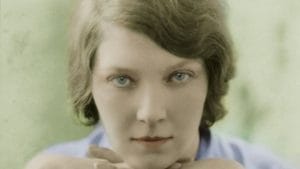March 2013
I was invited towards the end of 2012 to give a public lecture on Ford at Stony Stratford library. Stony is on the outskirts of Milton Keynes, and has always had strong links with the Open University. The lecture was to be one of the library’s regular public events, held monthly since the fight was won to keep the library open in the face of budget cuts. This campaign was nationally reported. The Friends of Stony Stratford Library orchestrated the taking out of 16,000 books in one week in January, 2011 to make closure impossible. It worked. (There’s a film on YouTube about the campaign – see below.)
I was delighted to be invited to speak about Ford in this community. The event, scheduled for March, 2013, sold out quickly – Parade’s End was very much in the air – and I had to beg an extra ticket for my mum. There were about 60 in the room to hear my lecture, ‘Ford Madox Ford, Parade’s End and the War’. I spoke for an hour on Ford, his influences, his route to war, and Parade’s End. The question and discussion session afterwards was very lively, covering everything from comparative studies of the war, to Ford’s characterisation, to his style, and life experiences.
Soon afterwards, I was asked to return in a slightly different capacity, to lead discussion of a Ford novel. The seminar, on The Good Soldier, was held on 12th November, with a group of 20 readers. We talked about whether we need to like first person narrators, and what happens if we don’t; we talked about religion, class, repression and sex. We also talked about genre, and this reader of Ford in particular took a great deal away from the discussion of melodrama, comic opera, and comedy.
Stony Stratford library is a vibrant, warm and exciting place. There’s an endless supply of tea and home-made cakes, as well as committed, energising and welcoming Friends, who keep the library operating in its highly rewarding capacity. I was invited for dinner with Judy and Richard after the seminar. There I learned how Margaret Thatcher had saved the Open University in 1972 (and despite Judy’s attempted intervention had been presented with her small son to admire on a visit to Stony in the 1980s), as well as (delicious irony) how strong a strain of communism and socialism ran in the university’s young veins. We discussed plots, the business of writing, and working with editors and agents over a good supper. Ford would have enjoyed all of it, I think, and I certainly did.
Sara Haslam






